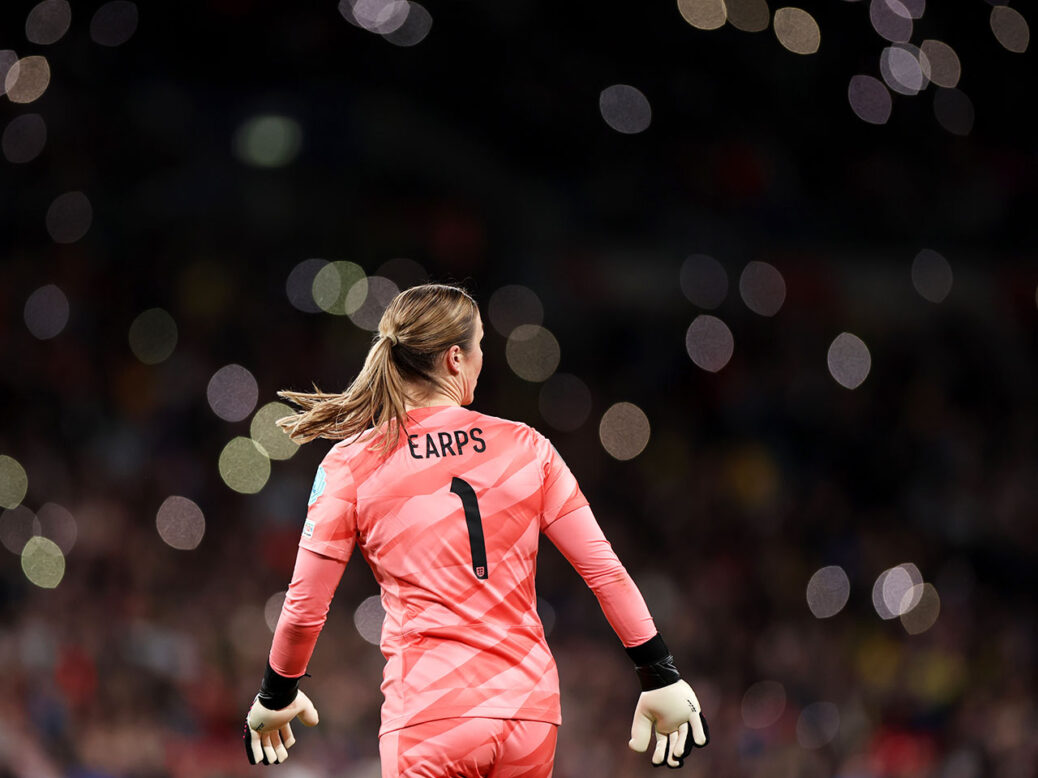
There was plenty to feel disappointed about after the Women’s World Cup final yesterday. From poor attempts at enthusiasm from the Prime Minister and the Prince of Wales, to controversies surrounding the Spanish management and the president of the Spanish football federation, it’s clear society’s treatment of women’s football still has a long way to go.
No one may know this better than Mary Earps. The England goalkeeper won the “Golden Glove” award for the best performance over the tournament. She was acclaimed on social media after appearing to scream “f*** off” when she saved a penalty in the final. Yet fans can’t get a memento to celebrate, as Nike has refused to produce replicas of her distinctive pink goalkeeper’s jersey. Its absence from retailers has also meant that Nike has excluded Earps from its advertising and social media campaigns.
What does it take to produce a football shirt? There’s clear customer demand: the petition for a replica of Earps’s England shirt has had tens of thousands of signatures, and her Manchester United shirt was the club’s third most popular, selling out before the next season. Earps has called Nike’s decision “hugely disappointing and very hurtful”, going so far as to offer to fund the production herself.
Women’s sports have long been perceived to lack profitability, and this perception has been prioritised over the social benefits of promoting them. This creates a vicious cycle of underfunding and underinvestment in women’s sports, leading to less interest in them.
Perhaps most concerning is that delayed attention to the specific needs of female athletes may contribute to increased injuries among female athletes. Female footballers are up to six times more likely to suffer from injuries to the anterior cruciate ligament (ACL, in the knee) than men. Up to 30 players had to miss the World Cup because of an ACL injury – including England’s captain, Leah Williamson, and the forward Beth Mead. There are concerns that boots designed primarily for men are partly responsible.
The gender disparity in ACL injuries has been known for more than 20 years, and yet the first football boot designed for female bodies (which have differently shaped heels and arches) was only introduced to the market in 2020. Nike’s own boot for women was launched just five weeks before the Women’s World Cup began.
This year parliament’s Women and Equalities Committee found that product descriptions by Sports Direct didn’t indicate whether boots were designed for women. When they asked the retailer what it was doing to support women and girls wanting to play football, they received no response. Meanwhile, boot manufacturers suggested that retailers can often be reluctant to stock women-only products and that there’s less demand for them.
Nike’s hesitancy over Earps’s jersey underlines just how ingrained the problem of underinvestment in women’s sport is. If one of the most celebrated sportswomen in the country isn’t deemed to be worth a jersey, what hope is there?
Inequalities between men’s and women’s sports have long been long acknowledged: the pay gap, the disproportionate prize money. But it is particularly disheartening that even corporations – which ironically stand to reap substantial profits from women’s achievements – choose still to withhold their support.
[See also: How I fell for women’s football]





